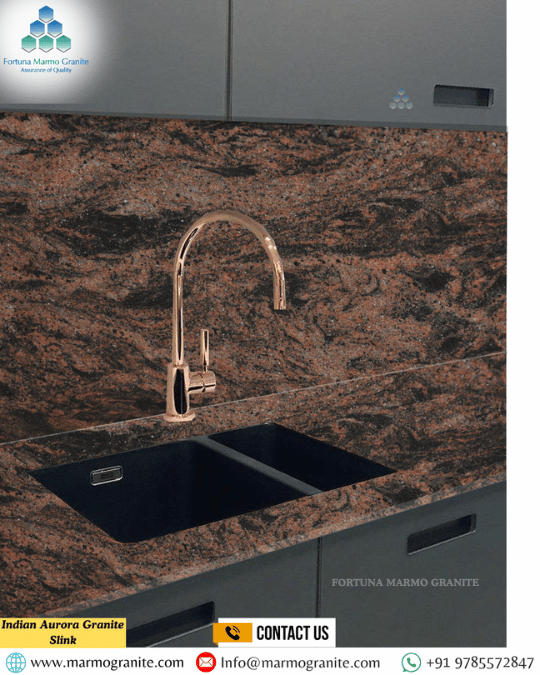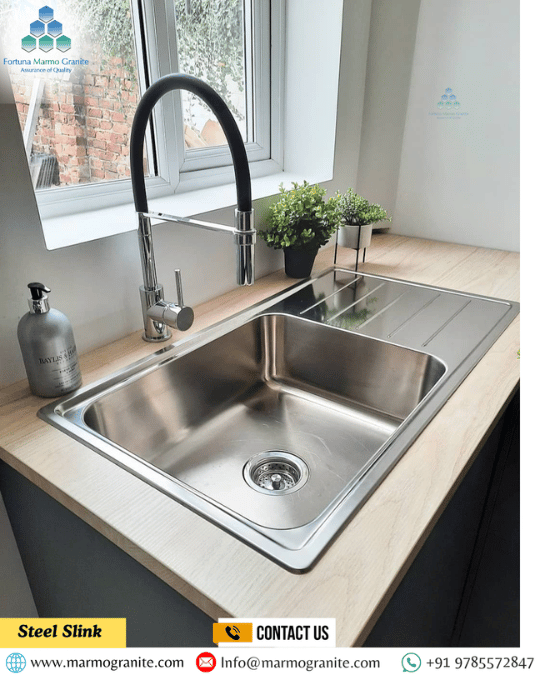Granite Sinks vs. Stainless Steel: Which is Best for Your Kitchen?
Choosing the right kitchen sink is about more than just function—it also affects style and long-term usability. Granite composite and stainless steel are two of the most popular sink materials, each offering distinct advantages.
Granite composite sinks are made from a blend of natural stone and resin. They feature a strong, matte finish that suits both modern and classic kitchens. These sinks are highly durable, resisting scratches, stains, and heat, making them ideal for busy kitchens. Their textured surface hides water spots and smudges, making cleaning easier. With a variety of colors available, they can complement countertops and cabinets seamlessly.
Stainless steel sinks are known for their shiny, clean appearance and practical design. They are lightweight, easy to install, and fit well with every kitchen style—from farmhouse to contemporary. While they may show scratches or water marks, many models include soundproofing to reduce noise. Stainless steel is also easy to clean and naturally resistant to bacteria, making it ideal for food preparation. Both granite composite and stainless steel sinks offer excellent value. The choice depends on your style preference, budget, and how you use your kitchen.
Durability & Longevity: The Battle for Brawn
- Stainless Steel Sinks: Stainless steel sinks are known for their durability. They resist chipping and cracking, so dropping a heavy pot or pan usually won't cause major damage. However, they are not completely scratch-proof. Thinner sinks, such as 22-gauge models, can dent more easily. In contrast, thicker, professional-grade sinks (16- or 18-gauge) offer much greater dent resistance. Scratches, especially on shiny finishes, are a common concern. While some people consider fine scratches part of a natural "patina," deep scratches can affect the sink's appearance over time.
- Granite Composite Sinks: Granite composite sinks are highly durable. Made from a mix of natural stone and resin, they are extremely scratch-resistant. You can slide heavy pans or sharp utensils across the surface with little worry. They also resist chipping very well. However, a severe impact—such as dropping a heavy cast-iron skillet from a height—could potentially cause a crack, though this is rare. Granite composite is also very heat-resistant and can handle hot pans or boiling water without damage.
Aesthetics & Design: Style vs. Function
- Stainless Steel Sinks: Stainless steel sinks offer a clean, sleek, and timeless look, making them popular in both residential and commercial kitchens. Their neutral metallic tone blends easily with many kitchen styles—modern kitchens with glossy cabinets, warm traditional spaces with wood accents, or industrial designs with exposed brick and raw finishes. Homeowners and designers often choose stainless steel for its professional, high-end appearance, reminiscent of gourmet kitchens. However, despite its visual appeal, it can have a few aesthetic drawbacks.
- Granite Composite Sinks: Ideal for homeowners seeking color and a natural, stone-like texture, granite composite sinks come in a wide range of shades—from matte black and gray to off-white and earthy browns. This variety allows you to coordinate seamlessly with countertops and other kitchen elements for a cohesive, customized look. The matte finish also helps hide water spots and minor blemishes better than stainless steel.
- Verdict: Granite composite excels in design flexibility and offers a rich, substantial appearance. Stainless steel, on the other hand, delivers a timeless, classic, and professional feel.
Cleaning & Maintenance: The Daily Grind
- Stainless Steel: Keeping a stainless steel sink looking its best requires a little effort. While it's non-porous and won't stain easily, water spots and mineral deposits can build up, especially in areas with hard water. Regular wiping with a soft cloth and mild soap is necessary. Abrasive cleaners and scouring pads should be avoided as they can scratch the surface. Over time, some people notice a slight discoloration or dullness if the sink isn't cared for properly.
- Granite Composite: Known for being incredibly low maintenance, granite composite sinks are non-porous and highly resistant to stains from coffee, wine, oils, and other common kitchen culprits. Their solid color and matte finish make them excellent at hiding dirt and streaks. Cleaning is simple: a quick wipe with a sponge and soapy water is often all that's needed. For tougher stains, a nylon brush can be used without fear of scratching the surface.
Sound & Functionality: The User Experience
- Stainless Steel: One of the most common complaints about stainless steel sinks is the noise. The clanging sound of dropped cutlery or a running faucet can be surprisingly loud. Better-quality stainless steel sinks address this by including sound-dampening pads or a spray-on sound-dampening coating on the underside, which significantly reduces the noise.
- Granite Composite: Due to its dense, solid, stone-like composition, a granite composite sink is naturally sound-absorbing. It is remarkably quiet. Dropping a fork or running the tap produces a dull thud or a gentle splash, rather than a metallic clang. This makes for a much more peaceful and pleasant kitchen environment, a significant functional advantage for many homeowners.
- Verdict: For a peaceful, quiet kitchen, granite composite is the hands-down winner.
The Price Tag: Initial Investment vs. Long-Term Value
- Stainless Steel: Stainless steel sinks are often the more affordable choice, making them popular for budget-conscious homeowners. Prices vary depending on several factors, including the gauge (thickness) of the steel. Thicker, lower-gauge sinks cost more due to their enhanced durability and dent resistance. Larger sinks, double-bowl designs, and premium brands can also increase the price. Despite this, stainless steel remains cost-effective. These sinks offer a timeless look, require minimal maintenance, and suit a wide range of kitchen styles—from modern to traditional.
- Granite Composite: Granite composite sinks usually cost more than stainless steel sinks. The higher price reflects their complex manufacturing process and durable, premium materials. Although the initial investment is greater, these sinks resist scratches and stains and last longer, potentially reducing the need for early replacement.
- Verdict: If you want to save on upfront costs, stainless steel is the budget-friendly choice. For a premium, durable sink with high-end features, granite composite is worth the extra investment.
Conclusion
Indian Granite Supplier , the debate between granite sinks and stainless steel sinks is not about which is universally better, but rather which is better suited for your unique kitchen environment, lifestyle, and aesthetic preferences. Granite sinks, with their bold and luxurious appearance, offer a high-end, sophisticated look that seamlessly integrates with granite countertops and other natural stone surfaces. Granite Sinks vs. Stainless .They are ideal for busy kitchens where functionality and affordability are key priorities, and their timeless appeal ensures compatibility with a wide range of kitchen themes—from contemporary to industrial. However, they are more prone to scratches, water spots, and noise without proper insulation. Ultimately, while both types of sinks have their merits, granite sinks stand out for those who prioritize design harmony, toughness, and long-term value.
At Fortuna Marmo Granite, We specialize in premium-quality granite products, sourced directly from India's finest quarries. As a trusted name in the industry, we bring expertise and craftsmanship to every piece—whether countertops, tiles, or custom granite sinks. Our mission is to help homeowners, architects, and designers make informed choices by providing products that combine elegance with exceptional durability.



